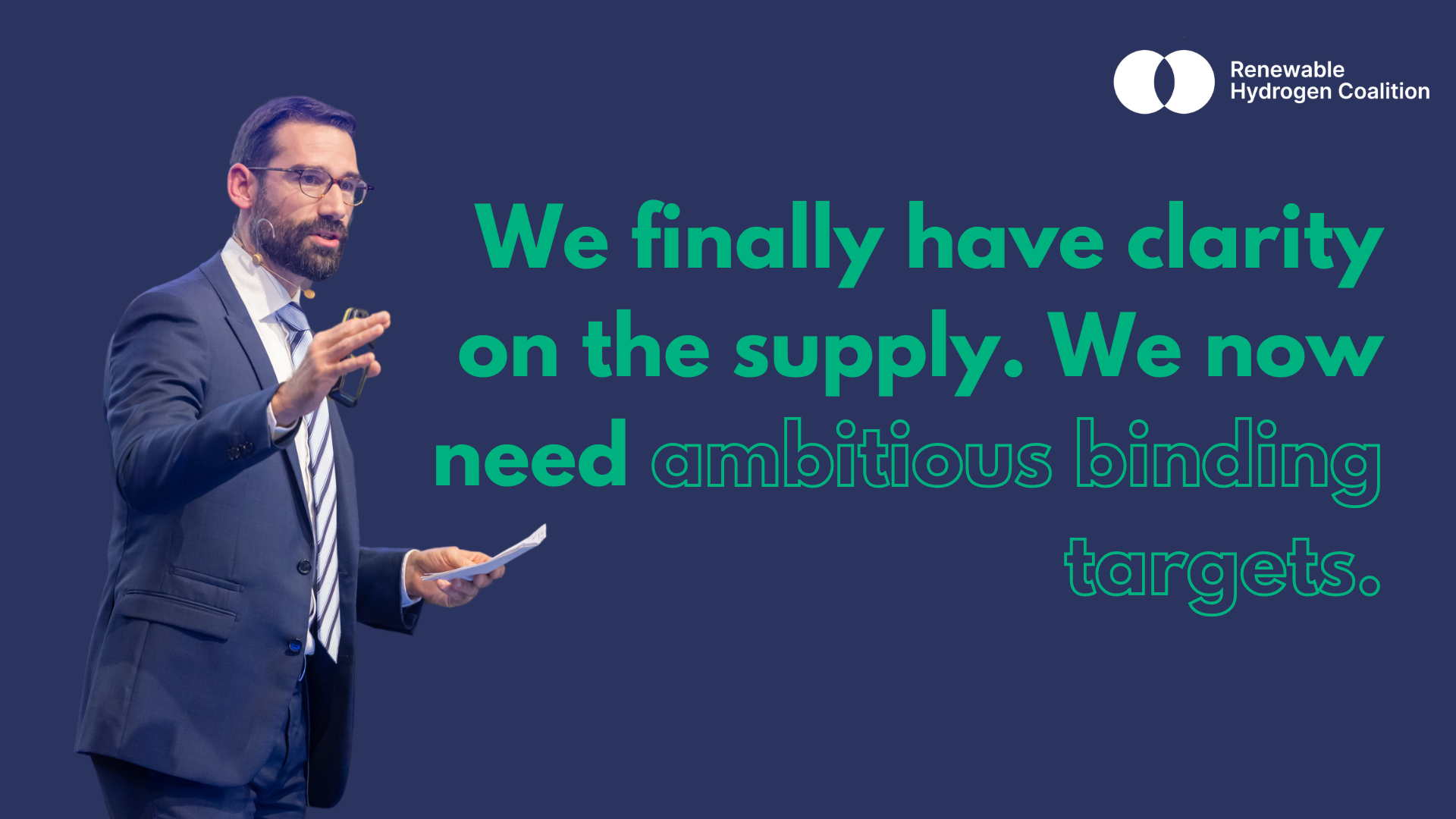Leading the way
With clarity on the supply side, we now need ambitious binding demand targets for renewable hydrogen
Threatened by a veto motion this morning, the Delegated Act on “Additionality” is now out of danger in the European Parliament. Much uncertainty remains though on the needed demand targets for renewable hydrogen.

With clarity on the supply side, we now need ambitious binding demand targets for renewable hydrogen
On 13 February, the European Commission finally adopted its long awaited Delegated Act (DA) on Additionality, which sets the rules to produce renewable hydrogen and its derivatives, so called “Renewable Fuels of Non-Biological Origin” (RFNBOs). This release was eagerly awaited by the industry, that had been calling for a fast adoption of such rules. Yet, in a last-minute move, a motion veto tabled in the European Parliament seriously jeopardised such adoption, threatening Europe’s ability to meet its energy and climate objectives. In a joint statement addressed to the European Parliament and Council this Monday March 27th, industry players across the value chain came together to stress the urgent need to adopt the Delegated Acts. To industry’s relief, the motion was rejected the next day.
While not perfect, the DA is one of the most important piece of the EU hydrogen policy puzzle, clarifying the rules to claim hydrogen as renewable or not, the volumes you can produce and at what cost. This is crucial to unlock investments and kickstart the production of renewable hydrogen in Europe.
Targets: Leading means binding
As the DA on RFNBOs provides clarity on the supply side, it is now critically important to unlock the demand-side by adopting ambitious binding RFNBOs targets of at least 50% in industry, and 5,7% in transport by 2030, during the final trilogue negotiations on the Renewable Energy Directive (RED).
Last week, EU policymakers reached an agreement on the FuelEUMaritime regulation to reduce the carbon footprint of Europe’s maritime sector and set a binding 2% target for RFNBOs uptake in the sector by 2034. This is good. This gives clear investment signals to market players. Now policymakers should follow suit with the RFNBOs targets in RED.
Setting ambitious binding targets will ensure the deployment of upstream value chain investments and the availability of renewable fuels with the speed and volumes required, at reasonable and stable price. Not doing so would hamper Europe’s ability to decarbonise hard-to-electrify sectors and maintain its reliance on imported fossil fuels.
Keeping these targets for RFNBOs only is crucial for the integration of a high share of renewables in the energy system. They will make renewable energy storable over longer periods of time and enable true sector coupling while contributing to increase Europe’s energy independence.
While the temptation to reflect national energy mixes in meeting the decarbonisation goals may be strong, it should not come at the expense of deploying renewables. This is why low-carbon hydrogen and derived fuels should not be counted in the calculation of RFNBOs targets. Such proposal would only reduce the volumes of RFNBOs that are crucially important to reduce emissions in the sectors that are the most difficult to decarbonise. The same holds true for proposals to reduce the share of RFNBOs in industry to let low carbon fuels come as a replacement. These moves only create a direct – and unfair – competition between low-carbon and renewable fuels, yet they fail to further reduce the overall share of fossil-based hydrogen and fuels.
Renewable Hydrogen Coalition’s Impact Director François Paquet said “Europe could become the first renewable hydrogen economy in the world. But this will only happen if policymakers set clear policy signals on both the supply and demand. If Europe does not act swiftly and decisively now, the race for market and technology leadership will be lost and investments will relocate to other areas of the world”.
Europe has a once-in-a-generation opportunity to be a global leader in one of the key technologies of the 21st century. EU negotiators on the Renewable Energy Directive cannot get this wrong.


